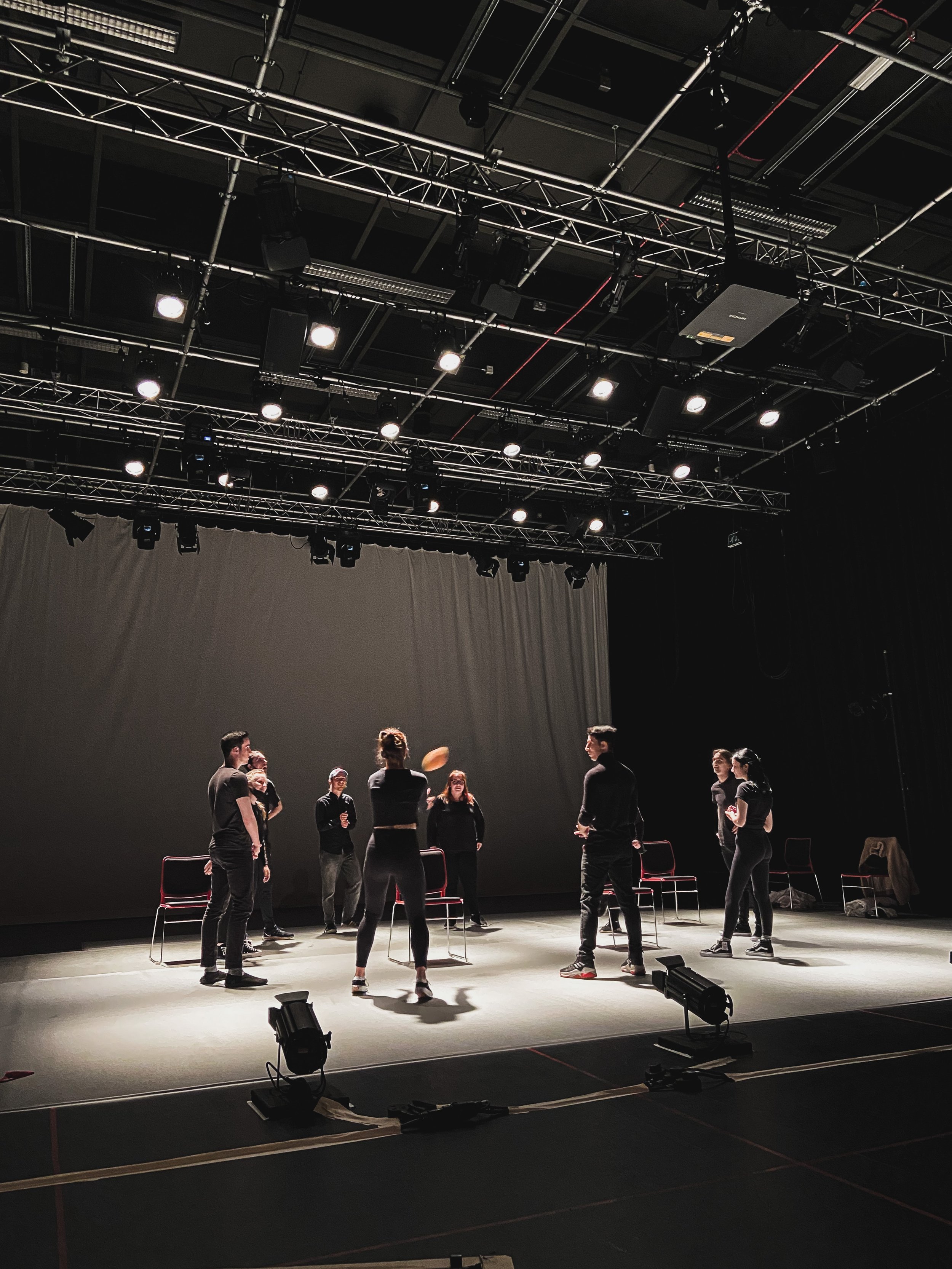Access in the Theatre
1 in 4 people in the UK are disabled, but less than 3 in 10 UK theatres list one or more access services for an upcoming production.
The current theatre industry is not an accessible one. We can help you change that.
Let’s set a scene where creative access is in your theatre toolkit…
At SIC we run a variety of workshops that focus on the challenges faced by the theatre industry.
We can support you with:
Accessibility in inaccessible venues
Creative access in the theatre industry
An introduction to disability and neurodivergence in the theatre industry
Supporting your disabled cast
Feel confident answering key questions like:
What is disability/ neurodiversity?
What is creative access and how can I incorporate this into my practice?
How can Access to Work support my disabled cast members?
What are the legal policies surrounding accessibility in theatre venues?
What theatregoers think about accessibility
“[Audio Description] means the world to me … it makes the experience. Without it, it’s a real struggle and I miss out on a lot.”
“I can attend some things without the need for any access services, but I have friends who cannot – we want to be able to go to things together so it’s important for everyone.”
“Captions are the only way I can follow a performance, so if it’s not captioned, I don’t go.”
Get to know the SIC team
SIC’s theatre offering is led by our Associate Consultant and resident theatre pro Annie Chadwick. Annie is a playwright whose work has been performed at The Other Palace, Camden People’s Theatre and Northern Broadsides. She’s worked on multiple projects with Leeds Playhouse, Sheffield Theatres and Ramps on the Moon, including their 2022 Symposium event ‘Access Shouldn’t Be an Afterthought’.
She is supported by Alice Hargreaves, SIC CEO, who brings a wealth of experience as a consultant on disability and neurodiversity in the workplace.
Alice and Annie have run their access in the theatre workshops with organisations such as the Royal Central School of Speech and Drama, Vaults Festival and Camden Fringe.
Annie, Associate Consultant and Theatre Maker
Alice, Disability and Neurodivergence Lived Experience Expert
The journey starts with listening to disabled artists, thinkers and theatre makers.
Learn from those with lived-experience of barriers in the theatre industry.
We’d love to help your arts organisation sell more tickets.
Listen to us on the Camden Fringe podcast
“From an industry point of view there isn’t a downside to putting thought and time into the access needs of your audience. It’s always good to sell tickets to more people! We work with a lot of new theatre makers and it’s a good opportunity to get creatives thinking about access and inclusivity from the start of their careers. Hopefully it will become a completely natural part of putting on a performance.”
Theatre is reactive to society.
Society is reactive to theatre.
Be a part of the change and get to grips with the latest research on our blog post.
“The onus should not be on disabled people. If we are to live up to the values enshrined in the Equality Act, it should be the urgent collective duty of everyone working in the arts and creative industries to take ownership of embedding and enforcing the social justice that it represents” - VocalEyes
Who we’ve worked with
Unsure where to start?
SIC’s Access Quiz - Unsure where to start with making your workplace more accessible? Our SIC Quiz is the first step to working out which support is best for you.











